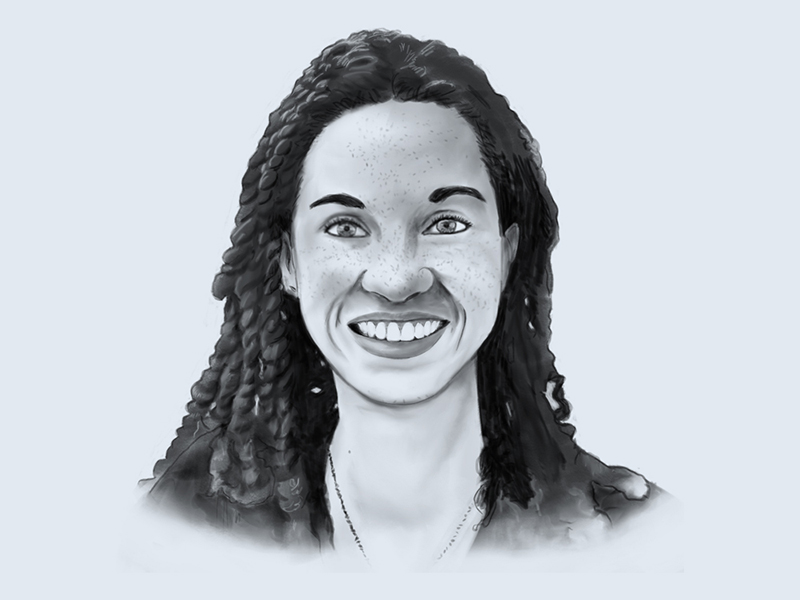
Different organizations across professions have their own unique symbols and rituals, from logos and industry lingo to hiring processes and corporate retreats. Summer Jackson, MA SID’13, studies these cultural markers as an organizational ethnographer.
Jackson, who sought a PhD in Economic Sociology from MIT Sloan after completing her MA in Sustainable International Development at Heller and working for the U.S. State Department, explains that this research is important because people spend most of their lives in organizations, and these places should be representative of their communities.
“I study organizational inequality, and I look at social categories like race, class, and gender, but more specifically, I look at what organizations can do to build diverse, equitable, and inclusive workplaces,” she says.
In 2021, Jackson was appointed assistant professor at Harvard Business School. Her course on leadership and organizational behavior is one of the first courses that students take in the MBA program.
“It’s a really exciting time for my students – they’ve just left the workforce and are starting on this two-year commitment,” she says. “A lot of folks are pivoting to a new part of their career, and my course leads them through different modules on how to be an effective leader.”
Jackson says organizations are increasingly interested in becoming more diverse, equitable, and inclusive, and making sure employees are better supported and resourced.
For example, in a recent study, “(Not) Paying for Diversity: Repugnant Market Concerns Associated with Transactional Approaches to Diversity Recruitment,” Jackson examined how a technology firm used different hiring platforms to attract minority engineering talent.
The study, which was published in Administrative Science Quarterly, found that when ShopCo — a pseudonym — used hiring platforms focused on minority candidates, managers felt uncomfortable with a process that seemed too “transactional.” They expressed distaste with the perceived objectification, exploitation, and “race-based targeting” of racial minority candidates, Jackson says.
She explains this reaction was the effect of “repugnant markets,” which are transactions that society perceives as immoral or uncaring in a marketplace setting. ShopCo was conflicted: although their goal is to increase diversity, equity, and inclusion within the firm, was “shopping” for minority candidates the right approach?
The study shows how ShopCo opted in favor of hiring platforms that emphasized qualitative aspects — such as individuality, ethics, equity, community, and commitment — over quantitative aspects such as hiring speed and compensation as their preferred approach to candidate recruitment.
Jackson hopes that researching organizational inequality will help more organizations create workplaces that are better for everyone.
“I'm excited to be a thought partner in this research and learn what’s working, what isn’t, and try to amplify practices so that organizations and we as a society can really address organizational inequality together,” she says.
